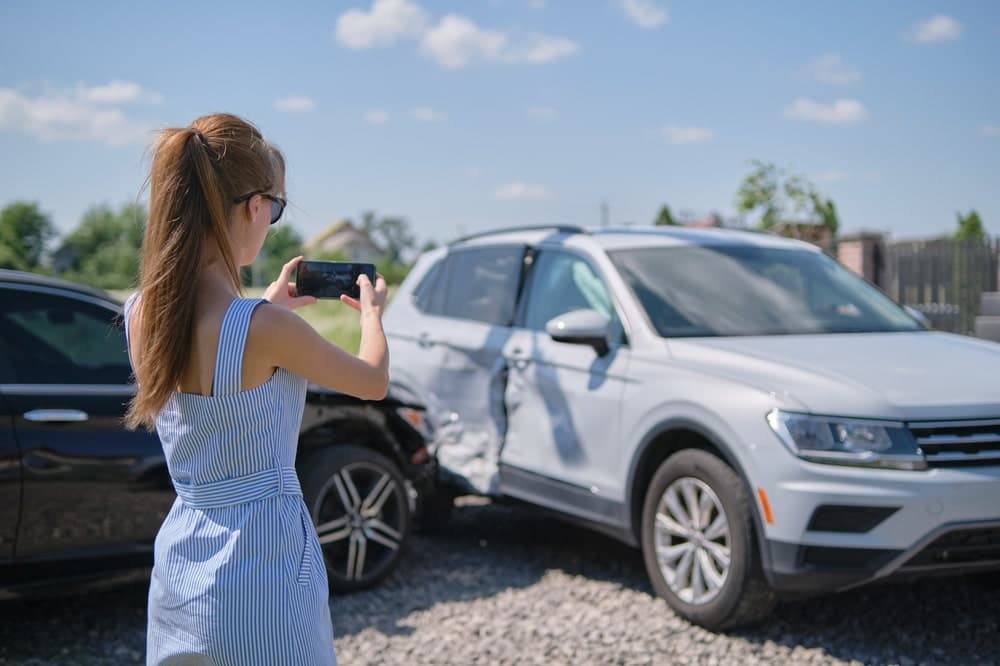What Happens If I Am At Fault for a Car Accident?
By Ben Gobel on October 17, 2024

No matter how careful you are while driving, you may find yourself in a car accident. You may even be at fault for a car accident—or at least bear partial blame—making you wonder what to do.
If you have serious injuries, all this stress can wear on you. It’s a good idea to speak with a car accident lawyer to discuss the specifics of your situation. Ogg, Murphy & Perkosky, P.C. is a personal injury law firm that represents cases involving auto accidents. In this blog post, you will learn what steps to take after a car accident, the laws about fault, and your potential options in an at-fault car accident.
First Steps to Take After Car Accidents Occur
No matter who is at fault in a car accident, it’s important to know what you should do at the accident scene.
Call 911
First, ensure the safety of all drivers involved and call the police. Inform them of any injuries, and when the police arrive, officers will create a police report that includes the details of the accident.
Exchange Information
All parties involved need to exchange contact and insurance information.
Get Medical Attention
Whether you know you’re hurt or you think you’re fine, get medical care from emergency services. You may have hidden injuries that will result in medical expenses that you’ll want covered.
Note the Evidence
You may not truly be at fault for a car accident, and the evidence can show it. Take photos and videos of the vehicles as well as traffic control devices, stop signs, and other things in the area. Also, speak with witnesses and get their information as they may be able to help prevent you from being blamed.
Understanding Fault and Liability
Accidents happen, and when they result in injuries and property damage, you may not know where to turn. You may think you are at fault in a car accident—but don’t apologize. The other driver may share some of the blame or even be completely at fault for this crash.
Determining fault requires looking at the facts and evidence. When the police come, that report may provide some insight, though many more factors will come into play. The insurance company will review this information as well and make a determination.
Additionally, you need to know that Pennsylvania is a no-fault state. In no-fault states, each driver files their insurance claims through their own car insurance policy. However, in cases of serious injury, the injured party may take the at-fault driver to court.
Proving fault is critical in no-fault states because you may wind up with a lawsuit when the other driver’s damages are more than their car insurance policy covers. It’s also possible to be partially at fault in this state. Laws regarding partial fault vary, but they involve a percentage threshold. Pennsylvania follows a modified comparative fault model. This means that you must be 50% or less at fault in the car accident to still recover financial compensation from the other driver.
What Happens with the Insurance Company and Car Insurance Rates?
If you are at fault in a car crash, your insurance company should cover some of those costs. However, your collision coverage may only be at the minimum required by the state. This could make you liable for covering major injuries for the other driver.
The other party may be blaming you for what happened, but you may not have done anything wrong or had much less fault in this accident. Still, you can expect that your insurance rates will rise, especially if other parties are trying to claim you caused the accident.
A personal injury attorney is an asset in times like this. When you live in a no-fault state, you could be blamed for an accident, even partially. What you say to your insurance agent matters, as insurance adjusters are trained to seem sympathetic after an auto accident.
By now, you should realize that you should never admit fault after an accident happened. You shouldn’t admit it to the insurance company either as they will likely try to increase your percentage of fault to lower your settlement or even deny issuance.
Fault matters, but if you are an injured party in this scenario with your own damages, you don’t want to be denied compensation that you are owed. Seek legal representation and you can ensure that your rights are protected through your own advocate who will review your auto insurance and the evidence from the accident.
Preventative Measures to Avoid Future Car Accidents
Accidents with motor vehicles happen every day on our Pennsylvania roads. While it won’t prevent an accident, it’s a good idea to review and understand your policy limits on your liability insurance to make sure you know what they’ll cover in the event of a crash.
Protect yourself on the road by wearing your seatbelt and following all traffic laws. Pay close attention behind the wheel and don’t let any distractions divert your attention from the road. Keep a safe distance from other cars. When the weather turns rainy or snowy, slow down to maintain control. You should also make sure to maintain your vehicle at proper intervals to keep brakes, tires, and other integral systems in proper working order.
You may find yourself questioning whether you are at fault for this accident—but don’t assume you are. The insurance adjuster will be pressing you and trying to blame you to minimize their payout. An attorney can help you avoid these common pitfalls. If you need legal help for a car accident in Pennsylvania, schedule a free consultation with Ogg, Murphy & Perkosky, P.C.
